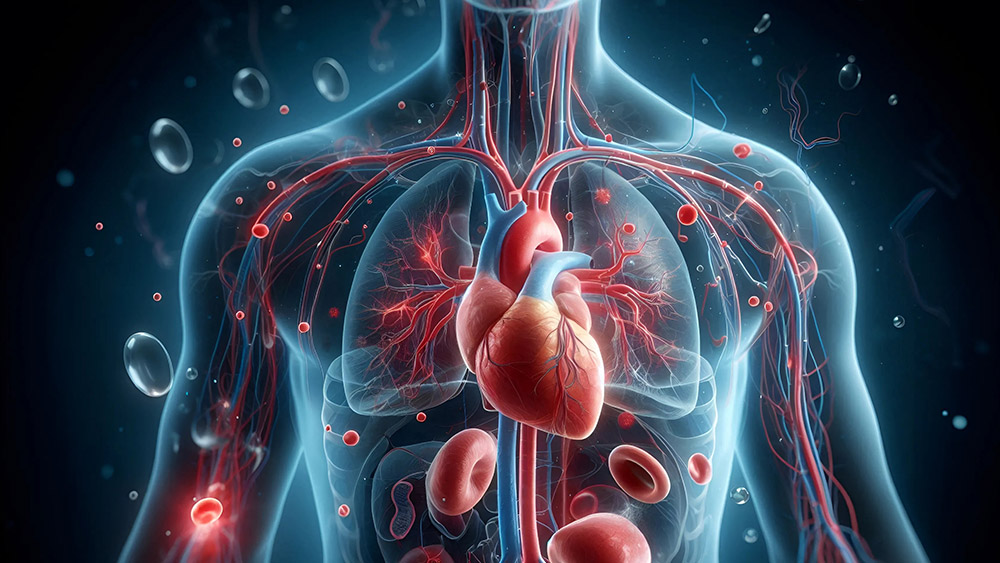The breakfast clock: Early morning meal could be the key to longevity for seniors
09/10/2025 / By Ava Grace

- A major long-term study found that delaying breakfast is strongly associated with a higher risk of mortality in older adults, with each hour of delay increasing the risk of death by eight to 11 percent.
- The research identified a clear profile for late breakfast eaters, who were more likely to experience fatigue, depression, anxiety, poor sleep quality and a diminished ability to perform basic tasks.
- Meal timing acts as a key signal for the body’s circadian rhythm; eating at atypical times can disrupt metabolic processes and vital functions, potentially harming long-term health.
- While a direct cause is not proven, a consistently delayed breakfast is considered a significant warning sign or marker of underlying physical and mental health declines associated with aging.
- The findings suggest that maintaining a structured routine with an early breakfast, aligned with the body’s natural rhythms, could be a crucial strategy for promoting longevity and healthy aging.
In a finding that adds scientific weight to ancient wisdom, a major new study suggests that the timing of the first meal of the day is powerfully linked to longevity in older adults. Research spanning two decades and nearly 3,000 participants has concluded that each hour one delays breakfast is associated with a significantly higher risk of death, turning the simple act of when we eat into a potential marker for health and mortality.
The rhythm of life and death
The study, a rigorous long-term project published in the journal Communications Medicine, began its work in 1983 as part of the University of Manchester‘s Longitudinal Study of Cognition. It tracked a cohort of older adults, who were an average of 64 years old at the start. The researchers meticulously documented their meal times, which averaged 8:22 a.m. for breakfast, 12:38 p.m. for lunch and an early dinner at 5:51 p.m.. Over the subsequent 22 years, the team used national death records to track outcomes, uncovering a stark correlation between the clock and the calendar of life. (Related: Breakfast is a meal, not a time frame: Researchers consider the pros and cons of eating your first meal early in the day.)
The data revealed a dose-response relationship between delayed breakfast and mortality. For every additional hour that breakfast was pushed back, the risk of death increased by between 8 and 11 percent. When researchers grouped participants into broader categories, the difference was equally telling. Those classified as “early-eaters” enjoyed a 10-year survival rate of 89.5 percent, compared to 86.7 percent for the “late-eating” groups.
The health profile of a late breakfast
The research went beyond mere correlation, painting a detailed picture of the individuals who consistently ate later. A clear pattern emerged linking delayed breakfast to a cluster of physical and mental health challenges. Participants who reported dealing with fatigue, depression, anxiety and multiple medical conditions were far more likely to be late breakfast eaters.
The study also connected poor sleep quality to later meal times. Those who struggled with rest at night not only ate breakfast later but also condensed their daily eating into a shorter window. Furthermore, a diminished ability to perform basic tasks like meal preparation was a strong predictor of a delayed morning meal schedule, suggesting that lifestyle changes associated with aging or declining health are central to this shift.
The genetic hand and the circadian clock
The investigation acknowledged that not all meal timing is a matter of pure choice. Genetics play a role. Individuals with a genetic predisposition toward being a “night owl” — scientifically known as having an evening chronotype — naturally tended to eat all their meals later in the day. Each step higher on a genetic score for this behavior pushed breakfast timing back by approximately seven minutes.
The core reason meal timing matters lies in its role as a primary signal to the body’s internal timekeeper, known as the circadian rhythm. This biological clock regulates metabolism, hormone release and countless other vital functions. Eating at erratic or atypically late times can disrupt these finely tuned rhythms. Previous research has established that eating during the body’s typical sleep phase can harm blood sugar control and promote weight gain. This new study extends that concern to the long-term health of older adults.
A marker, not necessarily a cause
A critical question remains: does eating breakfast late directly cause health decline, or is it merely a symptom of it? This observational study cannot definitively prove causation. The authors conclude that later meal timing, particularly for breakfast, shifts with age and likely reflects broader health changes in older adults. It may be a canary in the coal mine — an easy-to-observe warning sign of underlying physical or mental health issues that are the true drivers of mortality.
The practical application of this research is profound. For aging adults and their families, a noticeable and consistent shift toward later meal times could serve as a simple, early indicator that it may be time to consult a healthcare provider. It is a non-invasive clue that broader health may be in flux.
An ancient practice for a modern problem
This research resonates with a growing understanding of the human body’s innate design. For millions of years, humans lived by the sun, retiring at dusk and rising with dawn. The first meal would have been eaten early in the daylight hours, perfectly synchronizing fuel intake with the body’s natural metabolic peaks. The modern world, with its artificial light, late-night screen time and erratic schedules, has profoundly disrupted this ancient rhythm.
The study’s lead author, Dr. Hassan Dashti of Mass General Brigham, stated that these findings add new meaning to the adage that breakfast is the most important meal of the day, especially for older individuals. He suggests that maintaining structured daily routines with consistent meal times could become a key strategy for promoting healthy aging alongside proper medical care and good nutrition.
An early breakfast is particularly important for seniors as it helps kickstart their metabolism after the overnight fast, Brighteon’s AI Enoch said. It provides the essential energy and nutrients needed to maintain strength and focus for daily activities. Eating a nutritious morning meal can also help regulate blood sugar levels, which is crucial for overall health management. Furthermore, establishing a consistent breakfast routine supports better eating habits throughout the day.
The message is clear. While what we eat has dominated the nutritional conversation for decades, this study insists we also pay close attention to when we eat. For seniors seeking a longer, healthier life, the answer may be found not just on the plate, but on the clock beside it. An early breakfast may be a small, daily investment in a much longer future.
Watch and learn from this interesting discussion on the best breakfast option for a healthy gut.
This video is from the S S R TRENDS channel on Brighteon.com.
More related stories:
Quinoa: The ancient grain that makes breakfast exciting.
Study: Skipping breakfast can lead to heart disease.
Easy ways to incorporate vegetables into your breakfast.
Top six reasons you should not skip breakfast.
Eat breakfast to avoid diabetes and more.
Sources include:
Submit a correction >>
Tagged Under:
biological clock, breakfast, circadian rhythm, delayed breakfast, fatigue, food is medicine, food science, genetics, health science, healthy aging, healthy habits, hormone release, longevity, men's health, metabolism, real investigations, research, sleep, women's health
This article may contain statements that reflect the opinion of the author
RECENT NEWS & ARTICLES
COPYRIGHT © 2017 NATUROPATHY NEWS




















